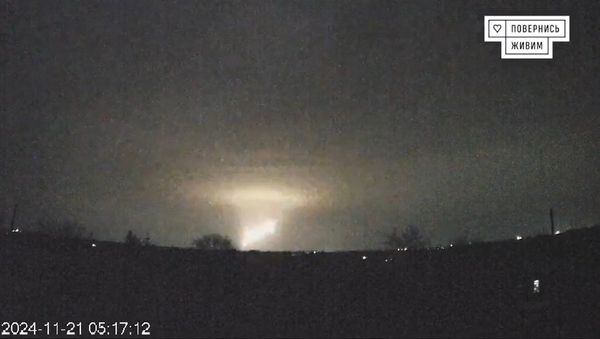
Lysychansk (Ukraine) (AFP) - The casing of a cluster munition stood upright like a fence pole not far from a team of Ukrainian medics rushing a bleeding soldier from the eastern front.
One of the doctors reassured the wincing fighter that the tourniquet being squeezed just above his knee did not mean he was about to lose a part of his leg.
Another peered back at the smoke rising above one of the biggest battles of Russia's methodical assault on its pro-Western neighbour and cursed.
Some soldiers formed a protective circle around the scrambling paramedics and took down coordinates over their walkie-talkies for the next medical evacuation from the front.
"They come in waves," volunteer fighter Mykola said of the Russians' repeated attempts to push south past a strategic river near a rural settlement called Bilogorivka.
"They tried over the weekend and we pushed them back.Now they are trying again.It goes back and forth.First they hit us, then we hit them."
Pockmarked with holes
Neither Moscow nor Kyiv is a signatory to a 2008 convention banning the use of bombs and rockets that spread small but deadly munitions over larger areas such as fields or city blocks.
Their use in Ukraine highlights the brutal and often indiscriminate nature of the weapons falling from the sky on civilians and soldiers in the two-and-a-half-month war.
The casing from the cluster munition was lying near the last checkpoint leading to Bilogorivka -- a village whose fall would help the Russians launch an assault on Ukraine's eastern administrative capital of Kramatorsk.
Ukraine has been pouring in forces in what appears to be an increasingly desperate effort to hold the line.
Two besieged cities just east of Bilogorivka -- Lysychansk and Severodonetsk -- are a deserted but still contested war zone that the Russians might claim any day.
What happens inside Bilogorivka is nearly impossible to verify because both the settlement and its surrounding roads are being bombed and shelled incessantly with munitions of various type.
But the earth shakes around it and Ukrainian soldiers' faces darken when the settlement is mentioned by name.
Ukrainian President Volodymyr Zelensky said 60 people died when Russia bombed a school sheltering 90 villagers over the weekend.
Soldiers emerging from Bilogorivka were unable to confirm the claim because the school was in a northern area under the Russians' control.
"We went in and this is how we come out," a volunteer fighter who uses the nom de guerre Leto ("summer") said next to a green van pockmarked with holes the size of a child's fist.
"We're preparing to go back in again," he said at a rear base used by some east Ukrainian units.
"What can you do -- an order is an order.But we have no cover.We have no mortar guns.I do not know how our unit is going to fight."
'A little bit scary'
Surging military morale and a national outpouring of support for the army have been instrumental to Ukraine's ability to first defend Kyiv and then stall Russia's advance across the east.
This may be harder to maintain as the death toll mounts and Russia's superior strength in numbers and military muscle starts to translate into lasting gains.
The fog of war and military secrecy make it difficult to estimate how many soldiers both sides have lost in the battles.
But medics treating the wounded soldier near the cluster munition fired at the Bilogorivka checkpoint think it is far higher than what Ukraine suffered at the start of a Kremlin-backed insurgency in 2014.
"In all, if you look at the statistics, it is a little bit scary," volunteer doctor Yuriy Kozhumyaka said after helping lift the wounded soldier into an ambulance waiting a relatively safe distance away from the shellfire.
"You must be prepared for that.But it is shame," the 37-year-old art instructor-turned-doctor said.
Fellow volunteer paramedic Andriy Kukhar sounded a similarly sombre note.
"Many die," the 38-year-old dentist by training said."We cannot do anything to help many guys and they die.But this is war.We know this."







